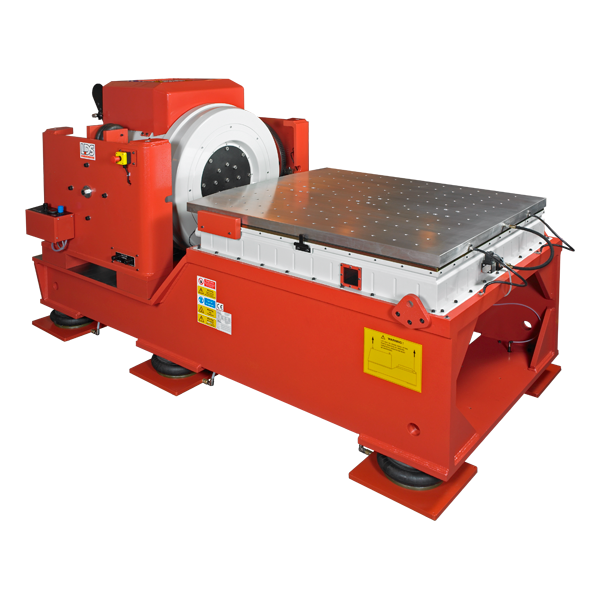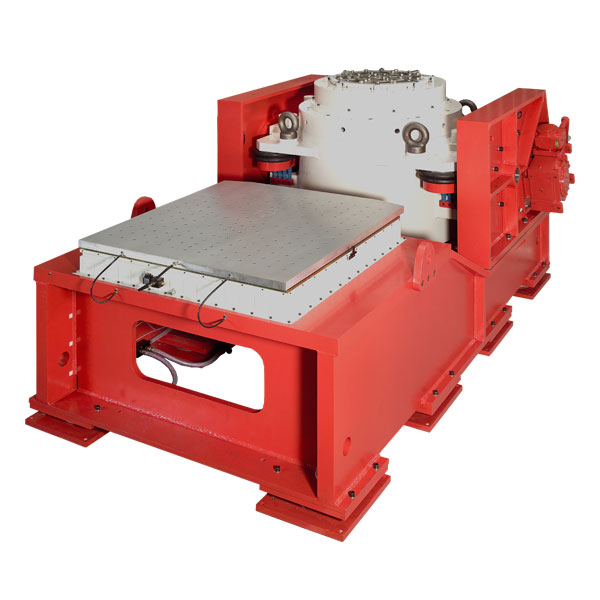Shakers & Exciters


LDS HBT Slip Tables Combo Systems With Hydrostatic-Bearing Tables
Part of many vibration testing systems, a slip table typically consists of a magnesium plate sitting atop a smooth granite block, with a lubricating film in between; both are housed in a frame that connects to the shaker’s armature, enabling it to excite payloads in the horizontal position.
LDS® Combo Systems with HBT Slip Tables have the power of our medium- and high-force shakers and the strength and stability of hydrostatic-bearing tables. Since excitation in three axes (one vertical and two horizontal) provides a more rigorous and realistic type of test, these systems are used for R&D and product qualification by a variety of industries, including automotive, aviation, aerospace and defence, and packaging and transport.
USE SCENARIOS
- Three-axis testing, including tests of complete satellite systems
- Testing of avionics and military hardware
- Space flight simulation
- Testing of commercial and defence aircraft assemblies
- Automotive component testing
- Testing of electronic assemblies
- Packaging and transport testing
CHARACTERISTICS
Specifically built for testing large articles, LDS® HBT Slip Tables incorporate linear hydrostatic bearings to provide greater load-support capacity. These tables offer increased stiffness, dynamic stability and damping, so that loads with high or off-set centres of gravity and high overturning moments can be tested safely and efficiently. Standard-size tables range from 600 x 600 to 1500 x 1500 mm (23.62 x 23.62 to 59 x 59 in) and custom sizes are available upon request.
LDS tables feature high-stability granite bases and slip plates manufactured from tool-grade magnesium, chosen for its strength and light weight. A film of pressurized oil between the base and the plate gives uniform support across the entire surface.
Designed with flexibility and performance in mind, our slip tables can be supplied either as stand-alone or with a shaker, as part of a system encased in one solid structure (or ‘combo’ base). For three-axis testing applications, we recommend the combo configuration, as it offers easy installation and accurate alignment between shaker and table, reducing test setup time when switching the position from vertical to horizontal.
Alternatively, a trunnion-mounted shaker with a separate slip table on a seismic base is the favoured arrangement for testing very large or dynamically complex payloads, as it delivers optimal pitch, roll and yaw restraints.
While it is possible to purchase a stand-alone slip table for retrofitting with an existing shaker, the combo option is preferable in most cases, as the former is a more expensive, time-consuming endeavour that involves system downtime for installation and regular calibrations, potential misalignment issues, and ongoing maintenance costs.
ADDITIONAL CAPABILITIES
All LDS combo systems are compatible with AGREE chambers and can be integrated with other equipment to perform environmental tests, including Combined Environmental Reliability Testing (CERT). Thermal barriers, to protect the shaker’s armature and the slip table when operating at high temperatures, are available as an option.













